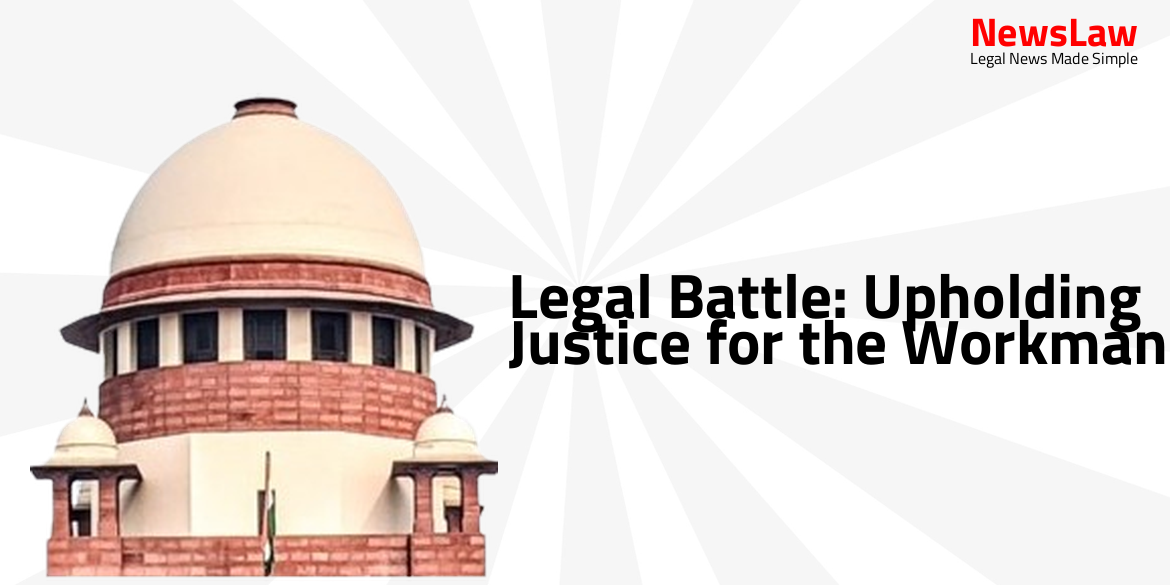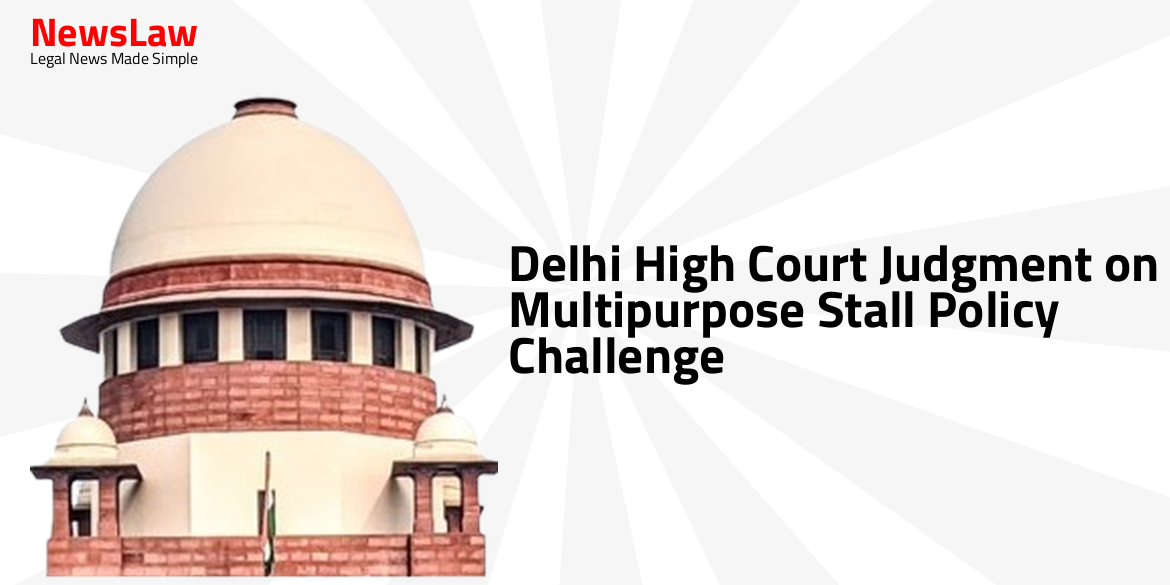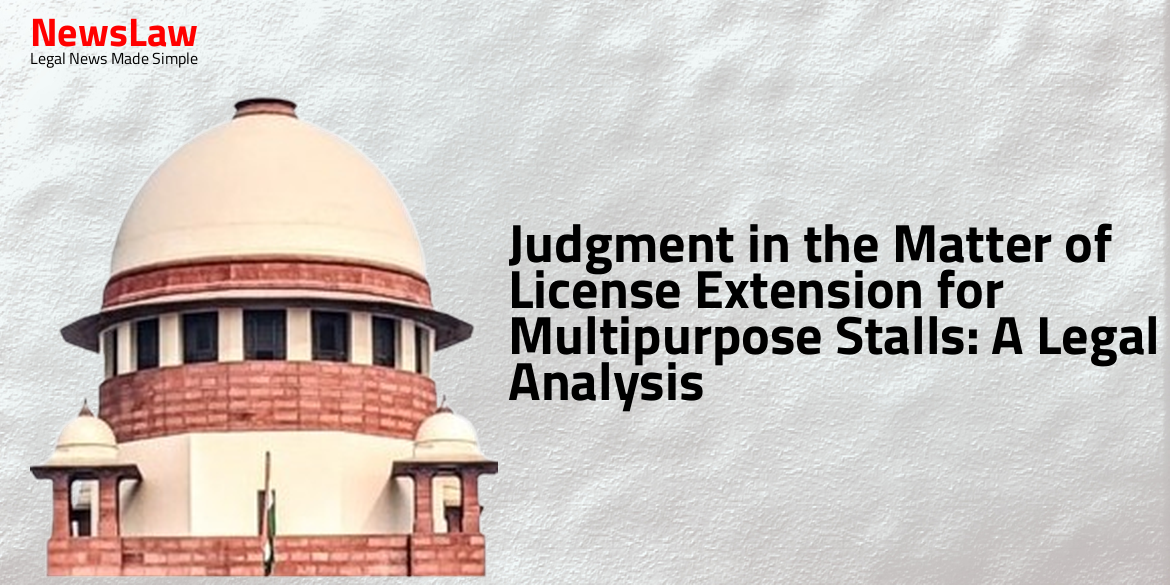In a significant legal case before the Delhi High Court, the workman from SIL and the management engaged in a battle for justice. The recent ruling sheds light on the intricacies of labor laws and the rights of employees in the face of corporate decisions. Stay informed about this case that has far-reaching implications for similar disputes.
Facts
- An ex-parte stay was granted by the Hon’ble Delhi High against the retrenchment on 29 September, 2005.
- The workman was retrenched by the management via letter dated 22 September, 2005, on the ground that there is no “Assistant” in the Company.
- SIL withdrew its appeal in CWP No 7137/2001 on 30 April, 2009, with an undertaking that it would implement the complete Labour Court Award dated 25 May, 2001.
- SIL Management sent a letter to the workman along with a cheque for Bank Wages, stating that they have implemented the Labour Court Award dated 26 May, 2001.
- The impugned Award dated 26/08/2014 as passed by Shri. Sanjeev Kumar, Presiding Officer, Labour Court in LCA No. 59/2010 under the provisions of the Industrial Disputes Act, before the Hon’ble Delhi Court on 28 November, 2001.
- The workman filed a Review Petition bearing no. Misc. Appl. 28/2014 before the Labour Court on 19 April, 2014, contending that there is an error apparent on the record.
- The petitioner filed the present writ petition seeking to set aside the impugned award in March 2015.
- The workman filed Contempt Petition CCC No 494/2009 before the Hon’ble Delhi High Court on 26 May, 2009, as consequential relief was not provided.
- The workman filed C.M. No 6774/2005 in CWP No 7137/2001 in May 2005, praying for direction to SIL to pay workman commensurate with his nature of work.
- SIL was directed to reinstate the Workman from 1 August, 2003, in CWP No 7317/2001 in July 2003.
- The workman moved an Application C.M. No 12358/2005 in CWP No. 7137/2001 for revoking the second retrenchment of the workman on the ground that he is entitled to the post of Manager.
- The workman argued that Mr. Jai Kumar Seth, who is junior to the Petitioner, in terms of experience and qualification is a Manager in the Company.
- The Labour Court dismissed the review petition due to no error apparent on the face of the record and no procedural error.
- Ex-parte stay was granted on the operation of the award by the Court.
- In CCC No 494/2009, the Delhi High Court stated that the workman is entitled to any relief if valid.
- The Labour Court fixed a 5% increment as consequential relief in an application filed by the workman under section 33C(2) in August 2014.
Arguments
- The Labour Court relied on an unsigned fact sheet of the management and arbitrarily fixed a 5% increment as consequential relief without considering junior employees’ compensation.
- Despite recognizing promotion as a consequential relief, the Labour Court did not grant it due to lack of appraisal after illegal termination.
- The workman was terminated illegally in 1993, with an above-average performance record, but received inadequate compensation as per the 2015 Award.
- Violation of natural justice occurred as the workman was not provided with a copy of the fact sheet to rebut its contents.
- The Labour Court dismissed the review petition on grounds of maintainability, disregarding potential errors in the original decision.
- The petitioner’s counsel argues that the award lacks consideration of all facts and circumstances, making it legally unsound.
- The Labour Court wrongly placed the burden of producing service rules on the workman, a confidential document held by the management.
- The 5% increment determined by the Labour Court was based on an unsigned fact sheet from the management, denying proper appraisal and promotion to the workman after illegal termination.
- The counsel prays for the petition to be granted relief based on these arguments.
- Failure to provide the workman with relevant records to prove employment status was highlighted as a violation of natural justice.
- Respondent management attempted to settle personal scores with the workman by withholding consequential relief.
- The Labour Court did not summon salary documents of certain employees while determining annual increment in an arbitrary manner.
- The review petition filed by the petitioner claimed that the total compensation awarded exceeded the actual gross salary paid by the management in 2003.
- Comparison of salaries of two employees in the same company for promotion is considered invalid due to differing service conditions, capability, skill, efficiency, and performance.
- The Labour Court correctly rejected the review petition (Misc. Appl. 28/2014) as it lacked the authority to review the matter on merits.
Analysis
- The Labour Court determined that it lacked jurisdiction to review the award unless there was a procedural error.
- The workman’s claim of salary reduction due to a 5% increment relief granted by the court was deemed unsubstantiated, as the management had reinstated him with a higher salary.
- The argument that the workman could not be considered for promotion due to being out of station during a specific period was dismissed as a merit-based finding rather than an error on record.
- The non-supplying of a fact sheet by the management to the workman was not deemed a violation of natural justice as it was not an inquiry into guilt, and the workman himself relied on the provided information for calculating the cumulative amount due to him.
- The review application was dismissed as it was not found to contain any procedural error or any substantive grounds justifying a review.
- The Court emphasized that a review would be warranted if the original proceeding was flawed by a procedural error or mistake that invalidated the entire process.
- The Labour Court was correct in not delving into the merits of the case due to the absence of a conferring provision in the Act.
- The High Court cannot act as an Appellate Court or re-evaluate evidence unless there is an error apparent on the record.
- The power of review/recall by a Labour Court can only be exercised if expressly provided under the Act.
- According to the Supreme Court in Kapra Mazdoor Ekta v. Birla Cotton Spg. and Wvg. Mills Ltd., a review on merits is not allowed under the I.D. Act in the absence of a provision conferring review power on the Tribunal.
- Procedural review is different and can be invoked in cases of procedural illegality that invalidates the proceeding itself.
- The Court finds no infirmity in the impugned award dated 4 March, 2015.
- The award passed by the Presiding Officer, Labour Court, Karkardooma Courts, Delhi, is deemed lawful.
- No evident error exists on the face of the record justifying interference by the Court under its writ jurisdiction.
Decision
- The instant writ petition has been dismissed.
- All pending applications related to the petition are also dismissed.
Case Title: BIKRAM BHATTACHARJEE Vs. M/S SINGER INDIA LTD. (2024:DHC:4654)
Case Number: W.P.(C)-3987/2015



